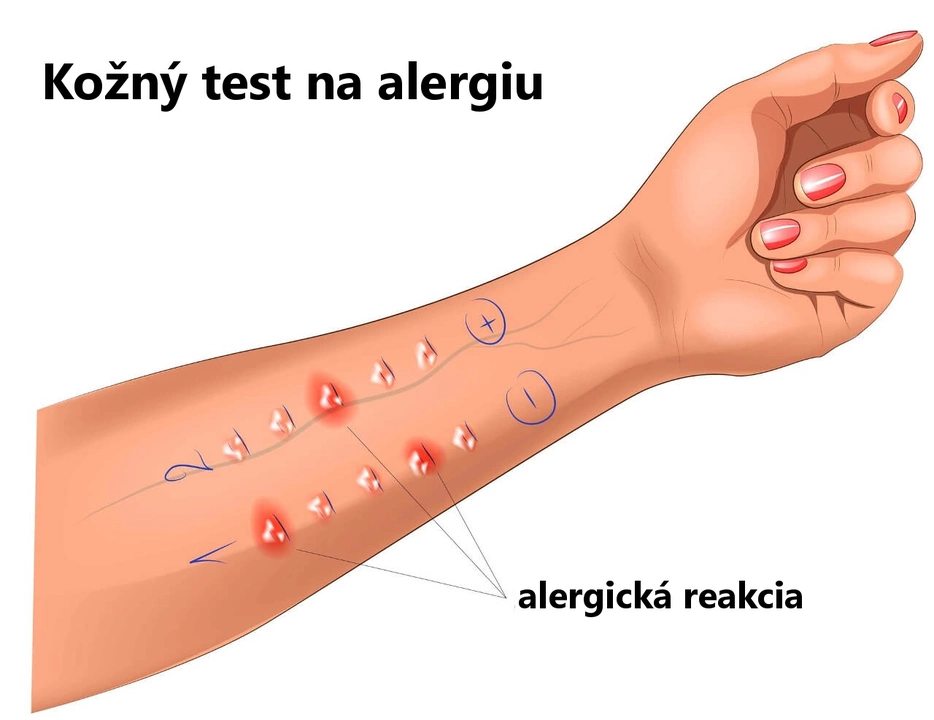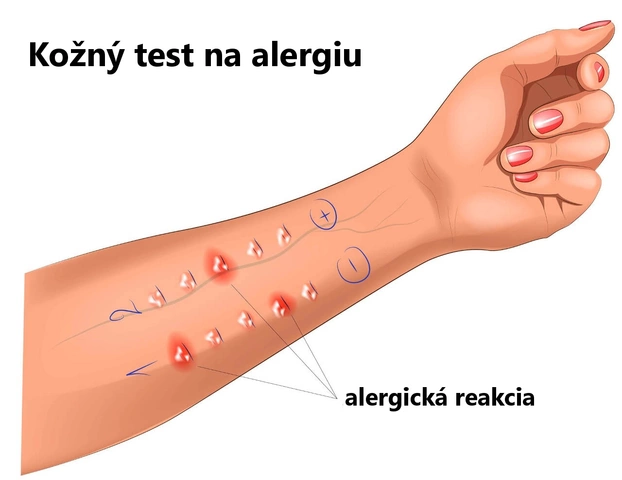
Understanding Chronic Urticaria and its Symptoms
As someone who has experienced chronic urticaria, I can attest to the discomfort and frustration it brings. Chronic urticaria, also known as chronic hives, is a condition where the skin develops red, itchy welts that persist for more than six weeks. The welts can vary in size, shape, and location, appearing anywhere on the body.
These welts may appear suddenly and, in some cases, can be triggered by factors such as stress, heat, or certain foods. However, in many instances, the underlying cause of chronic urticaria remains unknown. It is important to recognize the signs and symptoms of this skin condition so that you can seek appropriate medical care and find relief from your symptoms.
Introducing Bepotastine: A Promising Treatment Option
After trying various treatments for my chronic urticaria with little success, I was introduced to Bepotastine, an antihistamine medication that has shown promising results in relieving the symptoms of chronic urticaria. Bepotastine works by blocking the action of histamine, a substance released in the body during an allergic reaction that causes itching, swelling, and redness.
Bepotastine is available in oral and ophthalmic formulations, making it a versatile option for the treatment of chronic urticaria and allergic conjunctivitis. In this article, we will focus on the role of Bepotastine in treating chronic urticaria and how it has become a game-changer for many sufferers like myself.
How Bepotastine Provides Relief from Chronic Urticaria Symptoms
When I first started taking Bepotastine, I was amazed at how quickly it provided relief from my chronic urticaria symptoms. Bepotastine has a dual-action mechanism that not only blocks the release of histamine but also inhibits the action of other inflammatory mediators, such as leukotrienes and prostaglandins.
This dual-action mechanism results in a rapid reduction of itching, redness, and swelling, providing much-needed relief for those suffering from chronic urticaria. Additionally, Bepotastine has been shown to have a long-lasting effect, thereby reducing the frequency of flare-ups and improving overall quality of life for chronic urticaria sufferers.
Comparing Bepotastine to Other Antihistamines
Before discovering Bepotastine, I had tried several other antihistamines to manage my chronic urticaria symptoms. However, I often experienced side effects such as drowsiness and dry mouth, which negatively impacted my daily life. What sets Bepotastine apart from other antihistamines is its minimal side effect profile.
Bepotastine has been shown to cause less drowsiness than other antihistamines, allowing users to maintain their regular activities without any hindrance. Furthermore, Bepotastine has a lower incidence of causing dry mouth, making it a more comfortable option for those seeking relief from chronic urticaria symptoms.
Understanding the Safety and Precautions of Bepotastine
As with any medication, it is essential to understand the safety and precautions associated with Bepotastine before starting treatment. In general, Bepotastine is considered safe for use in adults and children aged two years and older. However, it is crucial to consult with a healthcare professional before beginning any new medication, especially if you are pregnant, breastfeeding, or have any pre-existing medical conditions.
Bepotastine may cause some mild side effects such as headache, dizziness, and gastrointestinal symptoms. However, these side effects are typically short-lived and can be managed with proper dosing and administration. If you experience any severe or persistent side effects, it is important to contact your healthcare provider immediately.
Discussing Bepotastine with Your Healthcare Professional
If you are considering Bepotastine as a treatment option for chronic urticaria, it is important to have a thorough discussion with your healthcare professional. Be sure to provide your healthcare provider with a complete medical history and a list of any medications you are currently taking, as this information will help determine if Bepotastine is the right choice for you.
Your healthcare professional will also be able to provide guidance on the appropriate dosage and administration of Bepotastine to ensure the best possible outcomes for your chronic urticaria treatment.
Embracing a Life with Reduced Chronic Urticaria Symptoms
Thanks to Bepotastine, I have been able to significantly reduce the frequency and severity of my chronic urticaria symptoms, allowing me to enjoy a better quality of life. If you are struggling with chronic urticaria, I encourage you to explore Bepotastine as a treatment option and discuss it with your healthcare professional. With the right treatment plan in place, you too can experience relief from chronic urticaria and enjoy a more comfortable, itch-free life.




Bepotastine is one of those under-the-radar antihistamines that deserves way more attention. Unlike the old-school stuff that turns you into a zombie, this one actually lets you function. I’ve been prescribing it for chronic urticaria patients for over two years now, and the drop in antihistamine dependency has been remarkable. No drowsiness, no dry mouth, just steady relief. It’s not magic, but it’s close.
For anyone wondering about dosing: 10mg twice daily is the sweet spot for most adults. Stick with it for at least four weeks before deciding if it works - histamine suppression takes time to build up in the system.
Yeah sure, Bepotastine’s great - until your insurance decides it’s ‘non-preferred’ and slaps you with a $300 copay. I’ve been on this crap for six months and my dermatologist’s office still hasn’t figured out how to get it covered. Meanwhile, my old generic Zyrtec costs $4 and makes me want to nap on my keyboard. So congrats, you found the perfect drug… for people who don’t have to pay for it.
I’ve had chronic hives for 8 years and nothing worked until I tried Bepotastine. I was skeptical - I’d tried so many things - but within 3 days, the itching stopped. Not reduced. Stopped. I cried. I didn’t think I’d ever feel normal again.
Side note: I take it with a glass of cold water and avoid spicy food. Not because it’s required, but because I’ve learned my body. Small things matter. If you’re struggling, don’t give up. There’s hope.
Also, if you’re in India, it’s available under the brand name Bepotin. Cheaper than the US price. Just ask your pharmacist.
Let me tell you something nobody’s talking about. Bepotastine isn’t a treatment - it’s a cover-up. The pharmaceutical industry doesn’t want you to know that chronic urticaria is often caused by mold toxicity, heavy metal accumulation, or even 5G radiation interference. They push these ‘antihistamines’ to keep you dependent. Why? Because if you cured the root cause, they’d lose billions.
I’ve seen it myself. My cousin took Bepotastine for a year. The hives went away. But his liver enzymes went through the roof. He didn’t know it until he had a routine blood test. Now he’s on a detox protocol. They don’t tell you that part in the pamphlet. They just say ‘safe for children.’
Do your own research. Read the FDA’s adverse event reports. Look up the patent filings. Who owns the rights? Who funds the studies? Who profits? The answer isn’t in your doctor’s office. It’s in the shadows.
Wow. This is actually one of the most balanced, real-life takes on chronic urticaria treatment I’ve seen in a while. I’ve been on the other side - the GP who’s tired of patients showing up with 17 different antihistamines in their bag, all of them failing. Bepotastine? It’s the quiet hero. No hype, no sedation, no ‘you’re just stressed’ nonsense.
I’ve had patients who couldn’t sleep, couldn’t work, couldn’t even hug their kids without itching. After Bepotastine? They came back smiling. One guy even brought me a cake. I still have the wrapper. It said ‘Thanks for not giving up on me.’
And yeah, insurance is a nightmare. But if your doc pushes back, ask for prior auth using the ICD-10 code L50.9. It’s a lot easier than you think. Just be polite. And maybe bring cookies.
Just wanted to add: if you’re on Bepotastine and still getting flares, check your thyroid. I’ve seen three cases where chronic urticaria was actually Hashimoto’s in disguise. TSH levels were borderline, nothing dramatic - but once they got the thyroid sorted, the hives vanished. Bepotastine helps, sure. But sometimes it’s just masking something deeper.
Get a full panel. Don’t just assume it’s ‘allergies.’